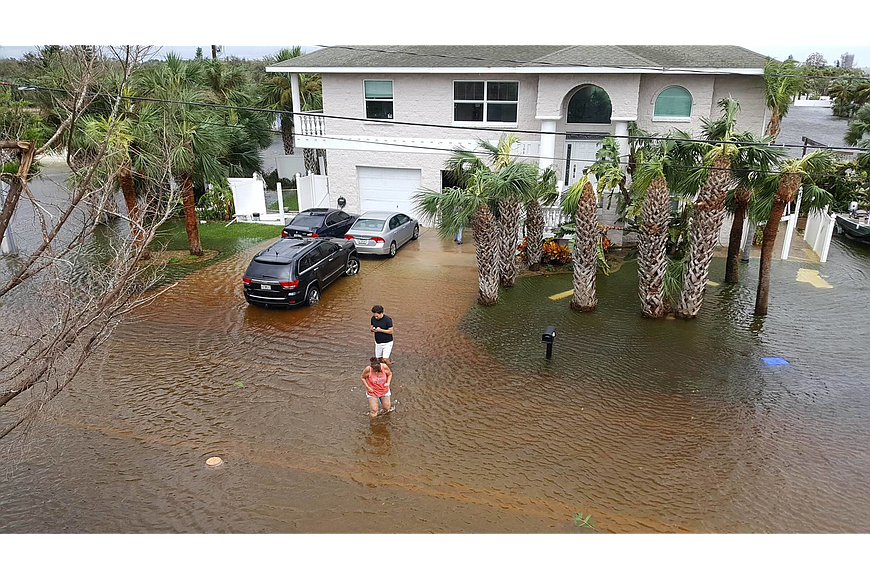Following the passing of Hurricane Irma, you may be experiencing a variety of problems, including problems with your sewage system, flood water contamination and mosquitos.
To become more informed on the situation, follow these tips from Flagler County:
Sewage system
With the conclusion of the storm, you may be experiencing problems with your sewage system. If you have a septic system that has a dosing pump, aerator or grinder pump, it will not work without electricity. Use water in your home as infrequently as possible until power is restored. Without power, the system could cause sewage to back up into your home.
Precautions:
- Do not enter flood waters because they might be contaminated.
- If you live in a low-lying or flood-prone area, the ground can become saturated from heavy rainfall. Limit water usage to prevent sewage backup.
What should you do if sewage backs up into your home?
- Keep everyone out of the affected areas or leave the home until all affected areas have been disinfected.
- If you choose to clean up the spill, wear protective clothing, including rubber boots and waterproof gloves. Clean walls, hard-surfaced floors and other surfaces with soap and water, followed by a disinfecting solution of 1/4 cup of bleach in one gallon of water.
- If sewage has overflowed into the street, avoid the area.
- If you are having problems in areas served by the public sewer system, contact your utility company to make them aware of the issue.
- Do not have the septic tank pumped. Exceptionally high water tables might crush a tank that was pumped dry or cause it to pop out of the ground.
- If you cannot use plumbing without creating a sanitary nuisance, consider renting a portable restroom until conditions improve.
- Do not have a septic tank or drainfield repaired until the ground has dried. Often, systems will function properly again when dry conditions return. Any repair must be permitted and inspected by the Department of Health-Flagler.
Flood waters
Flooding caused by storms can pose as a serious health hazard. While skin contact with flood waters is not dangerous by itself, it can pose a health risk when contaminated with bacteria and viruses.
The DOH in the county recommends the following to prevent possible illness from flood waters:
- Basic hygiene is critical. Wash hands with soap and either disinfected, boiled or cooled water, especially before preparing or eating food, after using the bathroom, participating in flood cleanup and after handling articles contaminated with flood water or sewage.
- Avoid eating or drinking anything that has been contaminated with flood waters.
- Do not wade through standing water. If you do, wash and put on clean clothes.
- Avoid contact with flood waters, especially if you have open cuts or sores. If you have any open cuts or sores that have come into contact with flood waters, wash the area well with soap. If a wound develops redness, swelling or drainage, seek medical attention. If you have not had a tetanus vaccination within the past five yeas, a tetanus booster will be required.
Mosquito control
Florida DOH officials are emphasizing the importance of protecting one’s self against mosquito-borne diseases due to the floodwaters of the storm.
The public should practice preventative measures like “Drain and Cover.”
DRAIN standing water to stop mosquitoes from multiplying.
- Drain water from garbage cans, house gutters, buckets, pool covers, coolers, toys, flower pots and any other containers where rain water has collected.
- Discard old tires, drums, bottles, cans, pots, pans, broken appliances and other unused items.
- Empty and clean birdbaths and your pet’s water bowls at least once a week. Protect boats and vehicles from rain with tarps that shed water.
- Maintain swimming pools and keep them appropriately chlorinated. Empty plastic swimming pools when not in use.
COVER skin with clothing or repellent.
- Clothing: Wear shoes, socks, long pants and long sleeves.
- Repellent: Apply mosquito repellent to bare skin and clothing.
Note: Always use repellents according to the label. Repellents with DEET, picaridin, oil of lemon eucalyptus, para-methane-diol and IR3535 are effective. Use mosquito netting to protect children younger than 2 months old.

